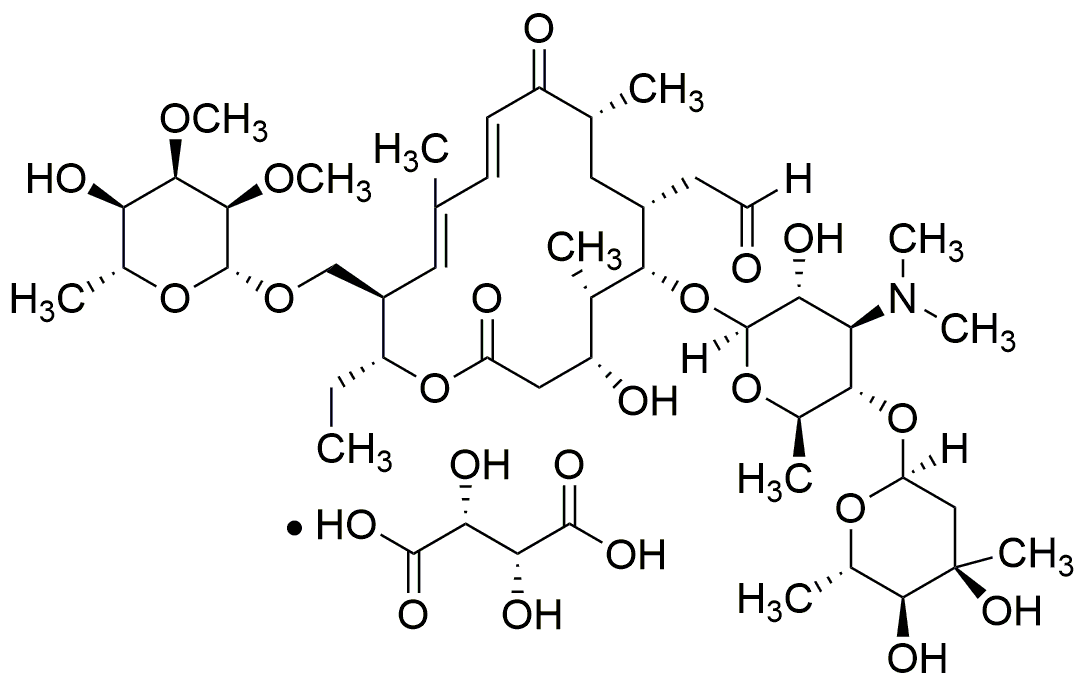Tylosin tartrate powder is widely utilized in research focused on:
- Veterinary Medicine: Commonly used as an antibiotic in livestock to treat respiratory infections, improving animal health and productivity.
- Pharmaceutical Development: Employed in the formulation of veterinary drugs, enhancing the efficacy of treatments for various animal diseases.
- Microbiology Studies: Serves as a tool for researchers studying bacterial resistance and the effects of antibiotics, contributing to better understanding and management of infections.
- Agricultural Applications: Utilized in animal feed to promote growth and prevent disease, leading to healthier livestock and increased agricultural output.
- Research on Antimicrobial Resistance: Plays a role in studies aimed at combating antibiotic resistance, providing insights that can lead to more effective treatments in both veterinary and human medicine.
General Information
Properties
Safety and Regulations
Applications
Tylosin tartrate powder is widely utilized in research focused on:
- Veterinary Medicine: Commonly used as an antibiotic in livestock to treat respiratory infections, improving animal health and productivity.
- Pharmaceutical Development: Employed in the formulation of veterinary drugs, enhancing the efficacy of treatments for various animal diseases.
- Microbiology Studies: Serves as a tool for researchers studying bacterial resistance and the effects of antibiotics, contributing to better understanding and management of infections.
- Agricultural Applications: Utilized in animal feed to promote growth and prevent disease, leading to healthier livestock and increased agricultural output.
- Research on Antimicrobial Resistance: Plays a role in studies aimed at combating antibiotic resistance, providing insights that can lead to more effective treatments in both veterinary and human medicine.
Documents
Safety Data Sheets (SDS)
The SDS provides comprehensive safety information on handling, storage, and disposal of the product.
Product Specification (PS)
The PS provides a comprehensive breakdown of the product’s properties, including chemical composition, physical state, purity, and storage requirements. It also details acceptable quality ranges and the product's intended applications.
Certificates of Analysis (COA)
Search for Certificates of Analysis (COA) by entering the products Lot Number. Lot and Batch Numbers can be found on a product’s label following the words ‘Lot’ or ‘Batch’.
Numéro de catalogue
Numéro de lot/série
Certificates Of Origin (COO)
This COO confirms the country where the product was manufactured, and also details the materials and components used in it and whether it is derived from natural, synthetic, or other specific sources. This certificate may be required for customs, trade, and regulatory compliance.
Numéro de catalogue
Numéro de lot/série
Safety Data Sheets (SDS)
The SDS provides comprehensive safety information on handling, storage, and disposal of the product.
DownloadProduct Specification (PS)
The PS provides a comprehensive breakdown of the product’s properties, including chemical composition, physical state, purity, and storage requirements. It also details acceptable quality ranges and the product's intended applications.
DownloadCertificates of Analysis (COA)
Search for Certificates of Analysis (COA) by entering the products Lot Number. Lot and Batch Numbers can be found on a product’s label following the words ‘Lot’ or ‘Batch’.
Numéro de catalogue
Numéro de lot/série
Certificates Of Origin (COO)
This COO confirms the country where the product was manufactured, and also details the materials and components used in it and whether it is derived from natural, synthetic, or other specific sources. This certificate may be required for customs, trade, and regulatory compliance.


